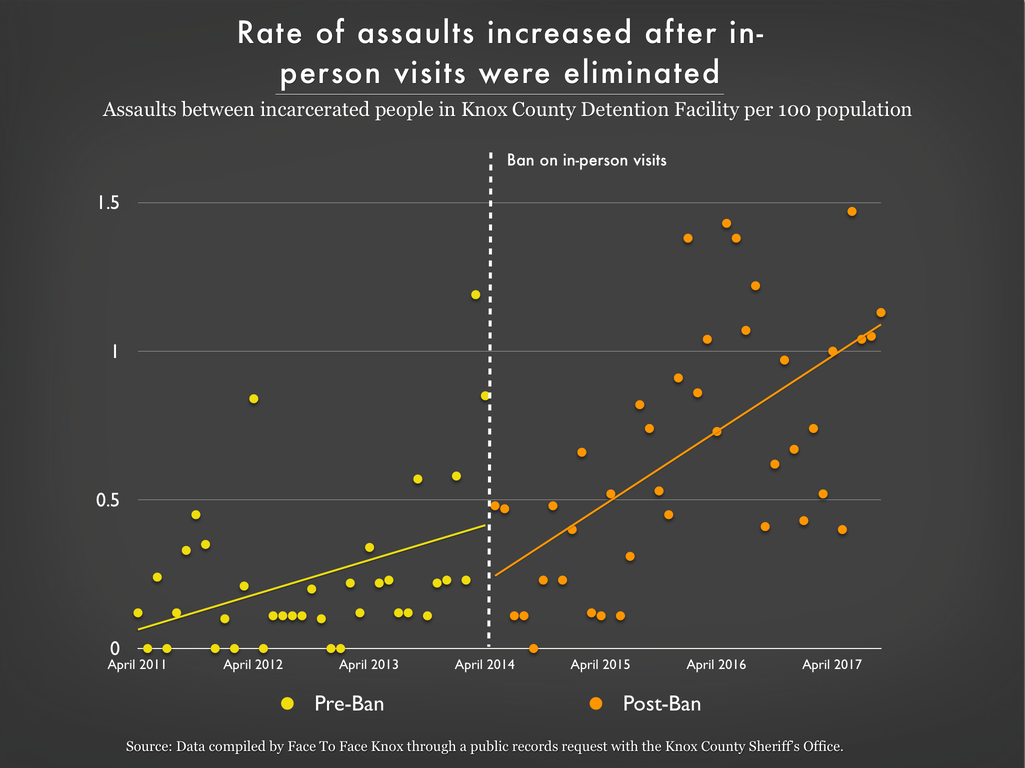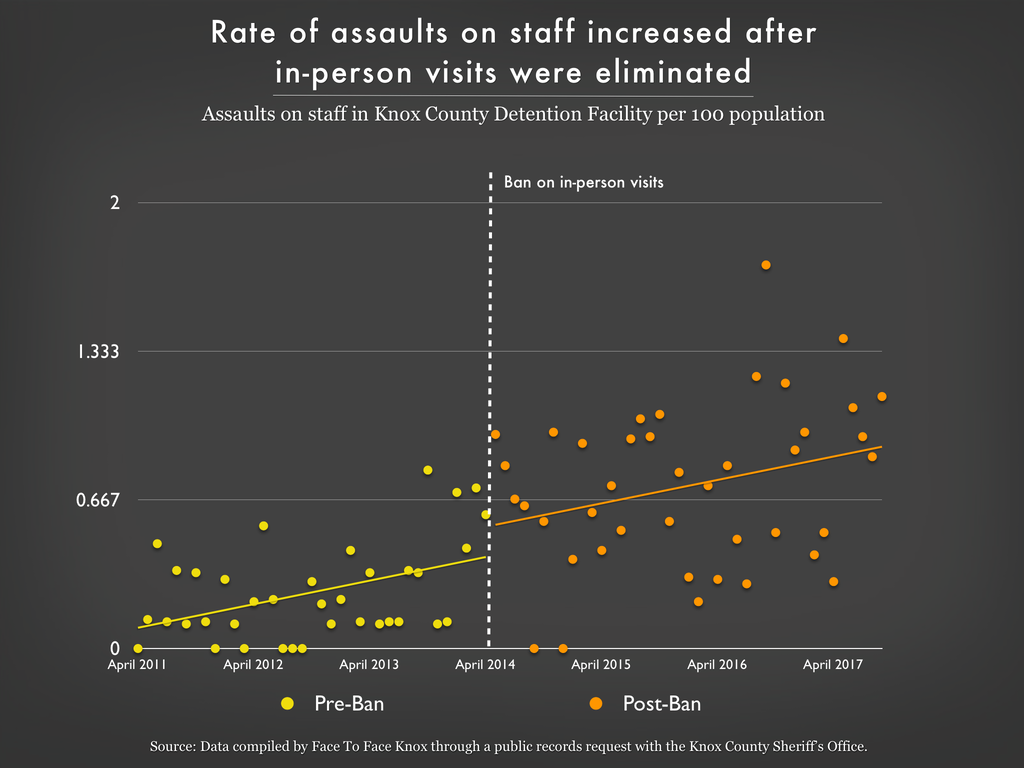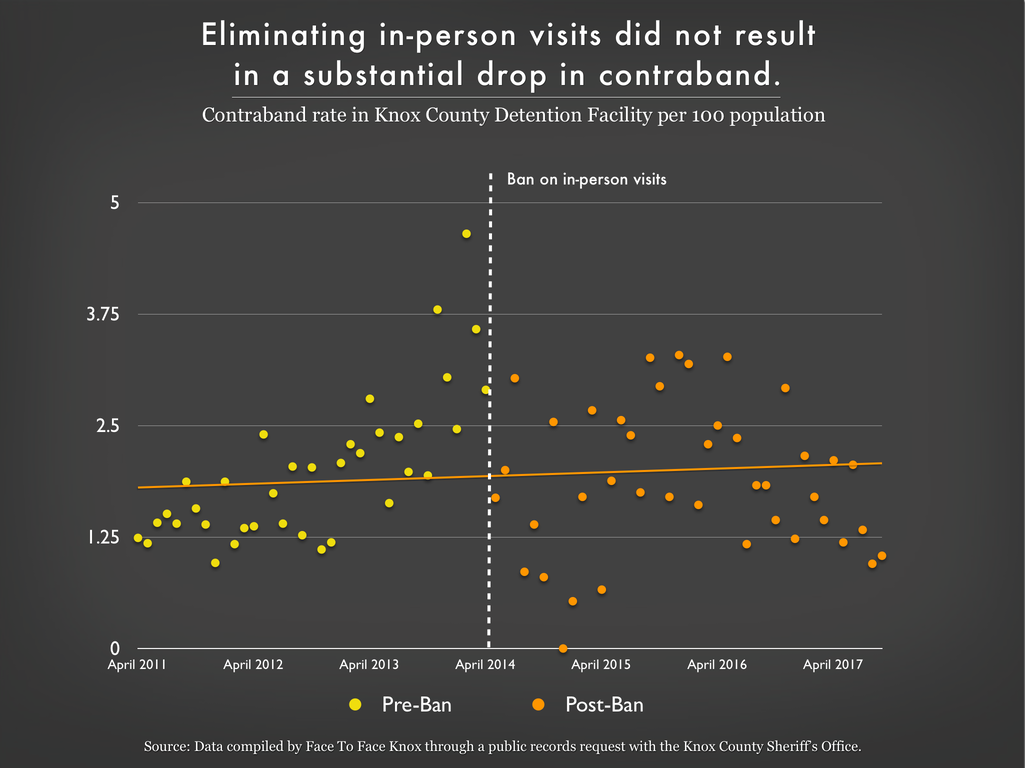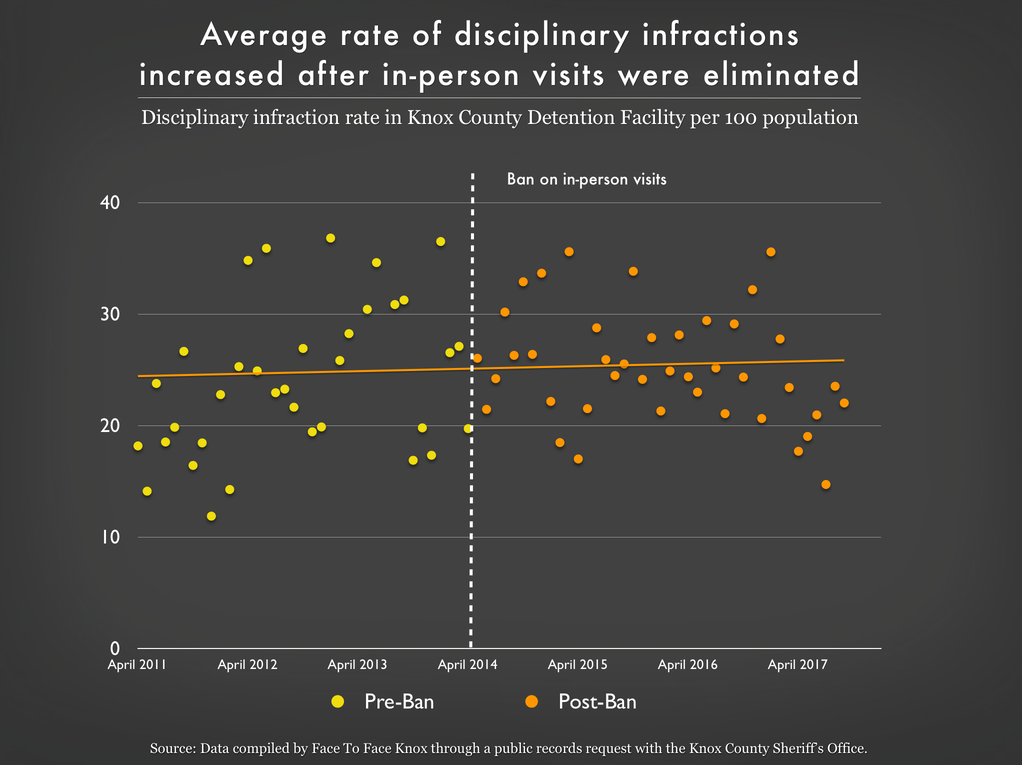Findings from Knox County, Tenn.: Replacing in-person visits with video calling is bad policy
A new report highlights how the replacement of in-person visits with video calling makes jails less safe, but more profitable for sheriffs.
by Lucius Couloute, January 30, 2018
In April 2014 the sheriff’s office in Knox County, Tennessee banned in-person visits at its jail facilities and entered into a contract with Securus Technologies, forcing incarcerated people to interact with their loved ones through video screens alone. The sheriff’s office cited concerns about contraband, safety, and efficiency to justify the switch from in-person visits to video chats, but failed to illustrate how a new video calling system would provide the magic bullet.
In a new report from Face To Face Knox, a grassroots coalition of citizens in Knox County seeking humane treatment for incarcerated individuals, data from an open records request shows that the replacement of family visits with video calls has resulted in more violence, no drop in the rate of reported contraband, and higher levels of disciplinary infractions, putting more demand on staff.
The video-only “visitation” system did exactly the opposite of what the sheriff’s office intended – except for turning a profit. At a cost of $6 a visit, the sheriff’s office has generated nearly $70,000 from the 50% commissions it makes on the backs of people attempting to stay in touch with their incarcerated loved ones.
As the report explains, “The results are clear: The ban on in-person visits makes the jail more dangerous, does nothing to stop the flow of contraband, and strips money from the pockets of families. It’s time to end the ban and give visitors the option to see their friends and loved ones face to face.”







